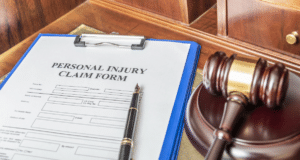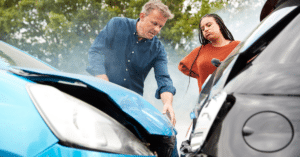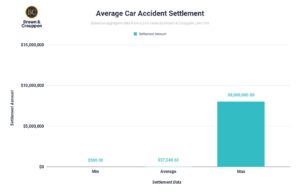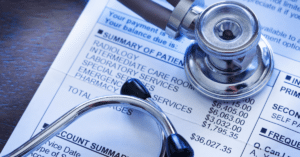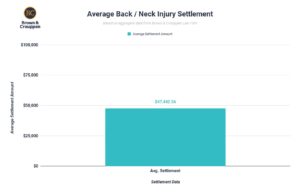“I TALKED TO THE DRIVER WHO HIT ME AND TOLD THEM IT WAS OKAY.”
It is very common that people involved in collisions may talk after the accident takes place, and it is a natural reaction sometimes to try to offer comforting words to those involved. Do your best to keep your conversation brief if others come to speak with you. We would recommend that you do not offer any apologies or engage in any discussion of any fault for any part of the collision. Once the police officers are on scene, the parties involved are normally separated so the officer can collect everyone’s story individually. We always encourage you to give the reporting officer the facts of the collision, including any statement the other party makes to you before the officer arrives. Also, make sure to tell the officer if you hit your head or any other part of your body because of the impact.
“I DIDN’T TAKE AN AMBULANCE OR GET IMMEDIATE CARE THINKING I WOULD BE FINE, BUT NOW I’M HURTING.”
Due to the initial shock of the collision, many people may think they feel okay and are not injured after the accident. Whether it is an hour or day later, if you have pain, you need to get treatment. Depending on the severity of your symptoms, this treatment may be going to an emergency room, urgent care facility, or making an appointment with a primary care physician. The most important thing to remember is that if you are having pain and/or problems, get checked out. Do not delay this treatment any more than necessary. Should you have suffered any head injury or experienced a loss of consciousness, you need to be seen immediately.
“I DIDN’T USE MY HEALTH INSURANCE BECAUSE THE ACCIDENT WAS SOMEONE ELSE’S FAULT.”
Your health insurance should be viewed as the primary coverage, and any charges incurred should be submitted to your health plan for processing while you are receiving care. Health insurance is a benefit you pay for to allow you to seek medical care as needed. The at-fault insurance will likely not be paying your bills as treatment happens, so using your health insurance is a way to ensure bills are paid while you recover. Your health insurance – whether Medicare, Medicaid, or a private plan – normally know if they are entitled to be reimbursed for their payments from the at-fault party’s insurer or not, and if so, they will take those steps, as necessary. Occasionally the health plan may reach out to you to get some information about the accident when considering claims; if that happens, advise your paralegal and attorney so they may respond.
“THE OTHER DRIVER’S INSURANCE COMPANY CONTACTED ME, AND I GAVE THEM A RECORDED STATEMENT.”
Insurance companies often want to investigate and try to resolve claims as quickly as possible for several reasons, including trying to minimize the amount they may have to pay to resolve a claim. During the investigation process, an adjuster will call to get your information pertinent to the claim: your personal information, injury information, property damage information (if your vehicle was damaged), and likely asking to take a recorded statement from you about the details of the collision. If you gave a recorded statement to the adjuster before getting an attorney, let your legal team know. We can request a copy of your statement transcript after our office notifies the insurer of our involvement on your behalf. Should the insurance adjuster try to reach you directly after retaining representation, alert your paralegal or attorney – this should not happen, and we need to speak to the carrier.
“I DON’T WANT TO CONTACT MY OWN INSURANCE COMPANY ABOUT THE ACCIDENT.”
People are often afraid to report a collision to their own insurance carrier for fear of rate increases due to the claim. However, you should report any auto accident you are involved in because your coverages may afford additional benefits for you. Almost all active auto insurance policies include coverage to their insured ‘in case’ the at-fault party did not have coverage, referred to as Uninsured Motorist (UM) coverage. There may also be elective additional coverages on your policy, like Underinsured Motorist (UIM) coverage and Medical Payments (MedPay) coverage, which can come in and add more funds possibly available to the claim. The decision on whether to contact your own carrier ultimately rests with you, the client, but it can be a costly mistake to not utilize all possible available coverages.
“I’M STILL RECEIVING TREATMENT, BUT I WANT THIS TO MOVE FORWARD.”
Making sure that you get all the necessary treatment to heal is the most important thing to focus on after an auto accident. Not only is it paramount that you can get back to the best condition possible for your own well-being, but that treatment can affect how any claim will be viewed by an adjuster. The treatment that is needed to recover will help provide the evidence of the injury, and the cost of that treatment will be viewed as a component of the value of the claim. We understand that it can take a while to go through the treatment and recovery process, but it is vital to your health and your claim. Should you decide to not pursue further care for your injuries if needed, you will be limited in what costs we can include to that treatment which has occurred and what we have evidence of. The decision to try and move forward without being done with treatment often limits your physical recovery and claim value.
“PEOPLE ARE CHECKING IN ON ME VIA FACEBOOK, SO I POSTED SOMETHING.”
Social media can be a useful way to keep in touch with each other and convey information quickly. Whenever major events happen – like an auto accident – the inclination could be to make a post to let your friends and family know you are okay, vent about the incident, or search for help with questions. As tempting and easy as that would be, it is a better idea to not post or publish any information about the accident. Depending on your security settings, any information, details, opinions, photographs, etc., can be searched for and used as a part of a potential claim. In these circumstances, skip the post or response and keep those details off social media – talk to your friends and family directly instead.
An auto accident can cause a great deal of stress, pain, and confusion. Having a knowledgeable paralegal and attorney can be a great resource for additional information, and to help ease a heavy burden off your shoulders. The staff at Brown & Crouppen are ready to assist you and help determine how much compensation your car accident claim is worth after an accident.
GETTING HELP WITH YOUR AUTO ACCIDENT CASE
If you or a loved one has been injured as a result of an auto accident, get help from the personal injury attorneys at Brown & Crouppen Law firm. With 9 office locations throughout the Midwest and a team of over 250 legal professionals, we have extensive resourcesto help you obtain the compensation your deserve.

